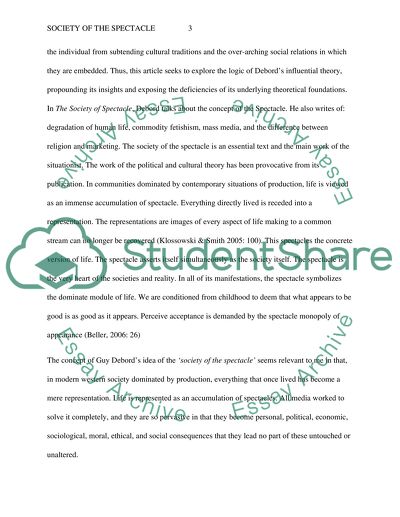Cite this document
(“Analyse Guy Debords idea of the society of the spectacle. Does the Essay”, n.d.)
Analyse Guy Debords idea of the society of the spectacle. Does the Essay. Retrieved from https://studentshare.org/journalism-communication/1654702-analyse-guy-debords-idea-of-the-society-of-the-spectacle-does-the-concept-seem-relevant-to-you
Analyse Guy Debords idea of the society of the spectacle. Does the Essay. Retrieved from https://studentshare.org/journalism-communication/1654702-analyse-guy-debords-idea-of-the-society-of-the-spectacle-does-the-concept-seem-relevant-to-you
(Analyse Guy Debords Idea of the Society of the Spectacle. Does the Essay)
Analyse Guy Debords Idea of the Society of the Spectacle. Does the Essay. https://studentshare.org/journalism-communication/1654702-analyse-guy-debords-idea-of-the-society-of-the-spectacle-does-the-concept-seem-relevant-to-you.
Analyse Guy Debords Idea of the Society of the Spectacle. Does the Essay. https://studentshare.org/journalism-communication/1654702-analyse-guy-debords-idea-of-the-society-of-the-spectacle-does-the-concept-seem-relevant-to-you.
“Analyse Guy Debords Idea of the Society of the Spectacle. Does the Essay”, n.d. https://studentshare.org/journalism-communication/1654702-analyse-guy-debords-idea-of-the-society-of-the-spectacle-does-the-concept-seem-relevant-to-you.


